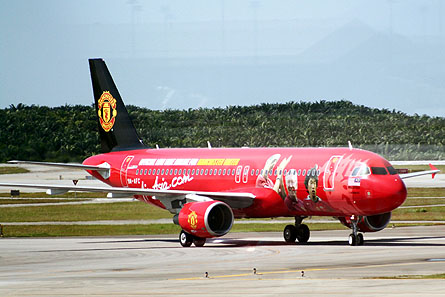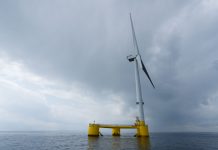Five innovative ventures turning end-of-life plastics into low carbon fuel for jetliners are to benefit from government grants totalling £165 million, the Department of Transport confirmed today.
Transport secretary Mark Harper described Whitehall’s wheels-up lift for plants in south Wales, Humberside, Teesside and Ellesmere Port as engineering a future where “guilt-free flying becomes a reality”.
All five factories are scheduled to be at least under construction by 2025.
The £165 million is released from the ministry’s Jet Zero experimentation fund, launched earlier this year on a five-year flight plan, seeking commercial lift-off of low-carbon replacements for traditional jet fuel.
Burned at altitude, conventional carbon-heavy jet juice inflicts proportionately heavier damage on the atmosphere, lingering longer as its pollutants degrade slower.
Unmitigated carbon burn from aviation is estimated already to account for 2% of all climate heating, and without social licence to climb to over 5% by 2030.
Reversing that trend, airlines serving British hubs are mandated under Whitehall policy to have at least 10% of their consumption switched to less damaging alternatives by 2030.
Junk plastic in its near-numberless forms – from packaging and household waste, to excess industrial offcuts – is the new feedstock eyed by competing chemists, racing towards commercial lift-off for replacements, generically known as Sustainable Aviation Fuels (SAFs).
UK government support for SAFs has evolved beyond the green fuels green skies scheme, launched in March 2021. Eight winners announced nine months later shared £15 million in public funds aimed at yielding solutions ready for pumping into conventional aero engines.
Today’s elevenfold increase in cash, disbursed through the Advanced Fuel Fund begun in July, has potential to assist the five latest winners – all victors in the earlier contest – in producing SAF output of 300,000 tonnes a year this decade.
That output is portrayed as propelling a plane over a hypothetical 60 ultra-long haul trips to the moon and back.
Today’s announcement comes less than a week after the government announced that Virgin Atlantic has won the race to make the first net zero transatlantic flight next year – powered by SAF. One of Virgin’s Boeing 787s, its Rolls-Royce Trent 1000s drinking SAF, will fly the Heathrow to JFK route.
Tim Alderslade, chief executive of trade body Airlines UK highlighted today how world SAF leadership for Britain could nurture tens of thousands of jobs, deliver levelling up for the North, and boost export earnings.
“It’s a big prize, and one we are committed to working with ministers to achieve”, said Alderslade.
Velocycs, based in Immingham, receives nearly £30 million, to advance its polymer-shattering project in partnership with British Airways. CEO Henrik Wareborn commented:
“Velocys is delighted to receive two grant awards from the Advanced Fuels Fund, helping to accelerate SAF at commercial scale using our technology. The Altalto grant will allow us to begin FEED for our waste-to-SAF plant in Immingham, which already has planning permission. The e-fuels grant allows us to work with our partners to explore the UK based production of power-to-liquid SAF”.
Other winners include the Teesside operation of Saudi-owned alfanar Global Development, the Stanlow, Cheshire plant of Californians Fulcrum BioEnergy, and Illinois-headquartered LanzaTech, whose UK operations receive a £25 million grant.




